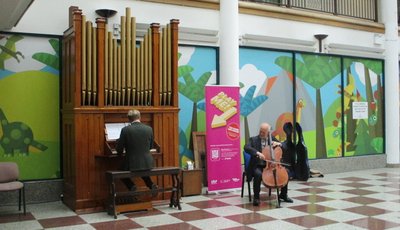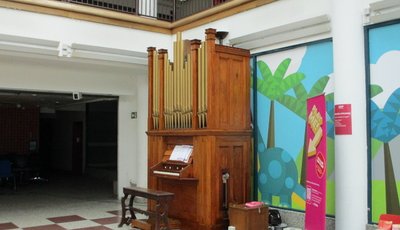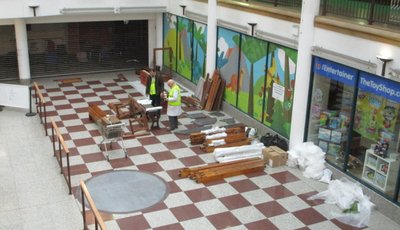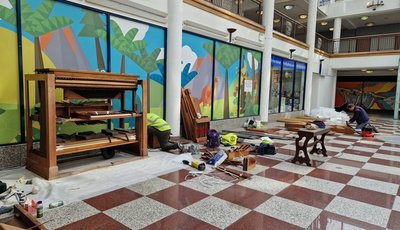Organ Donation - Breathing New Life into our Historic Organs
11 May 2023
11 May 2023
Vital organs don’t have to be limited to kidneys, livers and other bodily parts, but can mean the once beating hearts of our buildings – the historic pipe organ. Often, following closure these remain within the building, or are sold for recycling either to another local church or one some considerable distance away in Europe (with many now being re-housed in France, Poland and elsewhere), where we have seen a resurgence in the interest and re-use of these cultural assets.
The ability to continue to appreciate the wondrous sounds they produce is often not possible once a society ceases to meet. Many dedicated organists continue to care and maintain them until a new use for the building is found, but sometimes and with great sadness this is simply not possible. We hope that the new owners of the buildings care for them as we do, but unfortunately there is no guarantee. A recent documentary painfully explains the situation faced by many historic organs: Organ Stops: Saving the King of Instruments (available on BBC iPlayer: BBC Four - Organ Stops: Saving the King of Instruments). Whilst this makes for depressing viewing we see hope in the fact that there is an emergence of a small but dedicated band of rescuers that are looking to help find them new homes.
One such group is Pipe Up for Pipe Organs, which has recently helped the good people at Cranfield Methodist Church relocate their organ to a shopping centre in Croydon when their church closed. Martin Renshaw of Pipe Up for Pipe Organs contacted the church afterviewing the organ on the list of available instruments held by the Institute of British Organ Builders (https://ibo.co.uk/)[1]. After a considerable amount of effort by Alistair Riach and Richard Ward, of the North Bedfordshire Circuit, the historic organ was relocated, with Martin organising its dismantling, removal and reassembly (working closely with the London Mozart Players). The instrument now looks good following a clean-up and a fresh coat of natural lacquer.




Images © Martin Renshaw
The instrument is now available to play, under a similar scheme to that which you will be aware of that involves piano playing at railway stations. In the photographs above you can see Martin playing Bach/Gounod Ave Maria with the LMP ‘cellist, they are planning to play some of Mozart’s Epistle sonatas before long. But the key thing is that the organ has been preserved and is now in use. Visible on the photographs is a banner encouraging people to play it. To find out more about your organ[1], or to make enquiries about organ relocation from non-listed buildings, contact Pipe Up for Pipe Organs or the Methodist Church’s Organ Advisory Service.
There is much debate over what to do with these instruments when the building closes, should we be taking an enlightened view? Is it better for a much-loved organ whose useful life in our building has come to an end to be relocated somewhere abroad where it will be used for Christian worship? Or do we leave it in situ? Of course for those that are housed in listed buildings there will be legal restrictions on removing it from the building, and where it is a Historic Organ (as listed by the BIOS) some notification of church closure should be forward to them to update their records.
But we acknowledge that it is not an easy decision for an overburdened folk locally who are dealing with a range of issues when a church closes. Perhaps relocation to a far off land is better than leaving it at the mercy of vandals or unscrupulous developers who will simply throw it in a skip, perhaps relocating to a secular place is considered to be unworthy of such a fine instrument? But we shouldn’t discount this as, “who knows whether a pipeline of aspiring organists here might, occasionally, pull in someone whose first experience of an organ was in – say – a shopping centre in Croydon!’[2].
For further information please contact the Connexional Conservation Officer at conservation@methodistchurch.org.uk
[1] Visit the NPOR | The National Pipe Organ Register
[2] Richard Ward, Property Officer, North Bedfordshire Methodist Circuit